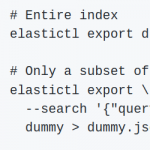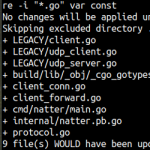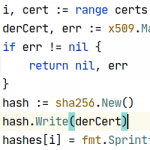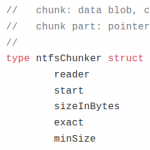
elastictl: Import, export, re-shard and performance-test Elasticsearch indices
For my work, I work a lot with Elasticsearch. Elasticsearch is pretty famous by now, so I doubt that it needs an introduction. But if you happen to not know what it is: it’s a document store with unique search capabilities, and incredible scalability.
Despite its incredible features though, it has its rough edges. And no, I don’t mean the horrific query language (honestly, who thought that was a good idea?). I mean the fact that without external tools it’s quite impossible to import, export, copy, move or re-shard an Elasticsearch index. Indices are very final, unfortunately.
This is quite often very inconvenient if you have a growing index for which each Elasticsearch shard is outgrowing its recommended size (2 billion documents). Or even if you have the opposite problem: if you have an ES cluster that has too many shards (~800 shards per host is the recommendation I think), because you have too many indices.
This is why I wrote elastictl: elastictl is a simple tool to import/export Elasticsearch indices into a file, and/or reshard an index. In this short post, I’ll show a few examples of how it can be used.




Recent Comments